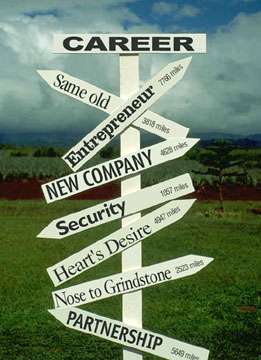As real estate professionals, I’m sure that most of you have put countless hours into trying to understand the process a person goes through to buy or sell a house.
I’m sure you’ve even documented “trigger events,” such as a job relocation, a change in marital status, financial changes, etc...all of life's events that cause a person to start moving forward in the process. 
Absent a trigger event, you undoubtedly also teach the agents you manage the importance of maintaining a relationship with a large group of people who are potential buyers and sellers, who may be at different stages along the pre-sales continuum.
As a real estate agent, it only makes sense to become an expert in what people experience in the process of buying and selling a house. After all, it’s much of what an agent’s livelihood depends upon.
Fast forward in your career... Now you’re a manager who is responsible for hiring new agents and retaining those who generate revenue for your office. Let me ask you a question:
Are you an expert in the process a person goes through to find a job, change careers, or determine when it is right time to leave a company?
If you think about it, the mastery of this body of knowledge is much of what your livelihood depends upon! I would encourage you to become a student of this topic. And, as you do so, focus on sources outside the real estate industry.
How do you find these sources? I’ll give you some specific ideas later this week in my next WorkPuzzle posting. But, to whet your appetite, here are a couple things I ran across this week that helped to build my knowledge on this topic:
Job Board Research. Last summer, the International Association of Employment Web Sites or IAEWS, conducted a benchmark study for job boards, and the results were just published last month.
Part of this study focused on candidate behavior and found that 75% of the people who visit/use job boards and career sites are “window shoppers.” These “window shoppers” are individuals who do not register on the job board’s site, rather, they come and go without applying to any jobs.
What does this mean? Well, the first lesson to be learned is that there are a lot of people who start a job search long before they are willing to make commitments and put noticeable action towards the process (ie. they are not desperate, but are starting to consider a change). Supplemental research shows that that this talent pool tends to contain the highest quality candidates!
The second lesson here is that huge opportunity exists for hiring managers who learn to how to coax people in this group to engage in their employment process. The study cited that the average job board gets between three and five responses/applications from each job posting. This metric can and should be used to measure your effectiveness at engaging candidates from this important group.
Understanding Entrepreneurs. You probably know intuitively that those individuals who make the best real estate agents have an entrepreneurial bent. But, do you know how entrepreneurs (especially younger ones) think? It seems it would be a good idea to spend some time learning about this topic if you hope to attract these types of individuals to your team.
Well, you’re in luck! Reid Hoffman, the co-founder of LinkedIn, just co-authored a book on this topic. Here is part of a summary that was recently published in 800-CEO-READ:
“Reid Hoffman and Ben Casnocha’s The Start-Up of You: Adapt to the Future, Invest in Yourself, and Transform Your Career makes the point that that all humans are entrepreneurs. At some level, each of us has the will to create and survive.
When you start a company, you make decisions in an information-poor, time-compressed, resource-constrained environment. There are no guarantees or safety nets, so you take on a certain amount of risk.
In today’s work environment, the same challenges tend to characterize a traditional job -– you never know what’s going to happen next. Information is limited. Resources are tight. Competition is fierce. The world is changing.
This means you need to be adapting all the time. And if you fail to adapt, no one – not your employer, not the government – is going to catch you when you fall.”
If this is what people are experiencing in the workplace, are you able help your candidates identify and articulate these fears and concerns? If so, you’ll be much better equipped to communicate how a real estate employment opportunity may be the best option for some people.
Later this week, we’ll take a look at a few specific companies that have figured out how to engage candidates successfully. I think you’ll be surprised by what you'll learn.
 Editor's Note: This article was written by Ben Hess. Ben is the Founding Partner and Managing Director of Tidemark, Inc. and a regular contributor to WorkPuzzle. Comments or questions are welcome. If you're an email subscriber, reply to this WorkPuzzle email. If you read the blog directly from the web, you can click the "comments" link below.
Editor's Note: This article was written by Ben Hess. Ben is the Founding Partner and Managing Director of Tidemark, Inc. and a regular contributor to WorkPuzzle. Comments or questions are welcome. If you're an email subscriber, reply to this WorkPuzzle email. If you read the blog directly from the web, you can click the "comments" link below.




Comments